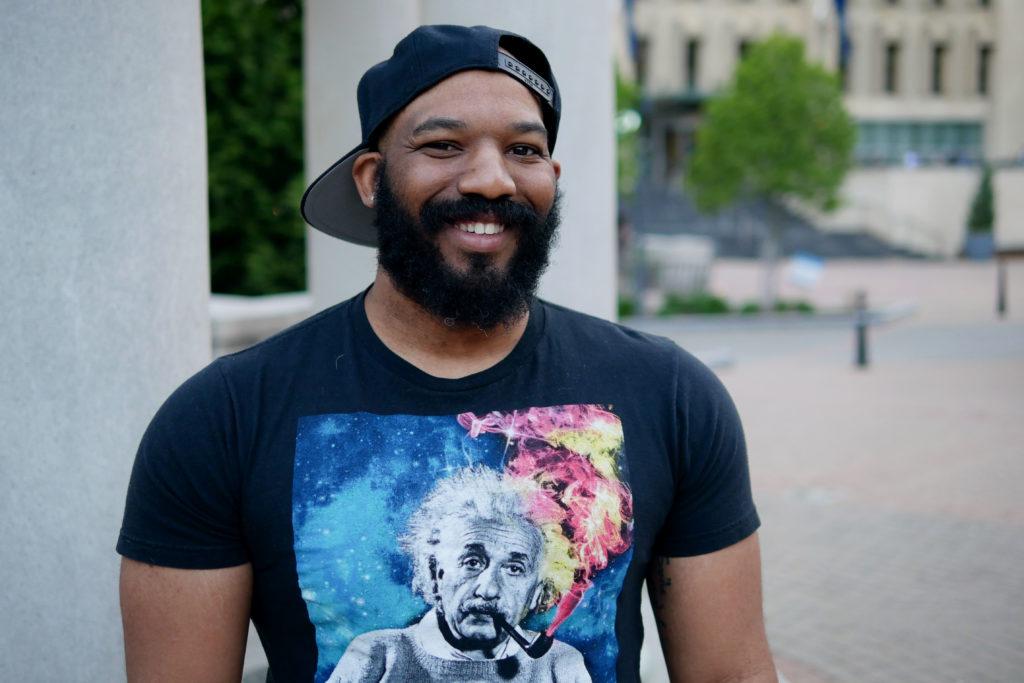After wrapping up a monthslong effort to garner insight from underrepresented communities, Student Association leaders plan to use their feedback to promote diversity awareness on campus.
The SA’s 24-member diversity and inclusion assembly, comprised of student organization leaders and SA senators, hosted nine listening sessions over the past academic year to learn about issues minority groups said they face on campus. Assembly leaders said conversations held in the sessions gave them insight that they can use to propose changes in University policy and write SA legislation advocating for minority students.
“When you’re sharing experiences and struggles on campus and the different types of microaggressions marginalized communities can face in the classroom and other places, you can educate more people around campus,” said SA Sen. AJ Link, Law-G and the chair of the diversity and inclusion assembly.
Shortly after its launch in September, the assembly introduced the listening sessions to receive feedback from minority groups in the GW community about how to better assist students with problems they face on campus, like discrimination and accessibility concerns.
Link said students who attended the sessions – which ranged between zero and 20 students per session – discussed issues like how students with physical disabilities struggle to access the Multicultural Student Services Center because it does not have an elevator.
“When the situation requires us to work with admin, there’s no barrier there, we’re more than willing to do it, but it kind of just depends on each problem that’s raised or issue that’s raised,” Link said.
SA Sen. Rilind Abazi, ESIA-U and a member of the assembly, said the town hall-style listening sessions created a platform for students to voice community-specific frustrations.
Abazi said students at the LGBTQ listening session raised frustrations about how freshmen are not allowed to live in the LGBTQ affinity. He said assembly members want to use the feedback to help first-year LGBTQ students find a community that could help ease their transition into college life.
Abazi added that the SA can pass legislation to protect groups from discrimination and speak with administrators to address students’ requests.
“It’s just making sure we’re getting the input on how the University can improve the atmosphere so that it’s more welcoming and more inclusive and empowering, but those are things we’re kind of gathering and seeing the best ways to approach them,” Abazi said.
Raina Hackett, an undergraduate SA senator-elect for the Columbian College of Arts and Sciences and the incoming diversity and inclusion assembly chair, said the assembly is still finding its “foothold” at GW and plans to continue the listening sessions next year to build trust with students.
“Diversity and inclusion is an ever-changing issue, so with the students on this campus, their needs are changing all the time, so one year there might be one issue and the next year there might be another,” Hackett said.
She said not all students are comfortable expressing their opinions to the assembly because some topics, like racism and exclusion, are often sensitive. Hackett said she and other SA members released a demographic survey two months ago that will stay open until the fall to allow students to bring concerns to the assembly without face-to-face interaction.
“If we don’t have a large majority of that marginalized community on campus, it can be very easy to assume that what one person says is representative of the entire group, which is not necessarily true,” she said.
Hackett added that next academic year, the group will speak to officials to push for mandatory diversity training for all students, staff and faculty on campus, following the required virtual diversity training for all incoming freshmen that the University implemented in February.
Senior Kendrick Chang, the outgoing president of the Hawaii Club and one of two students who attended a listening session for the Asian and Pacific Islander community, said moving forward, the assembly must focus on more “active outreach” to members of the student body about listening sessions because some sessions were poorly attended.
Chang said members of the Asian and Pacific Islander community also urged the assembly to clarify with attendees what the assembly should do with the information they garnered from listening sessions.
“Right now, it’s just been unclear in terms of what specifically they’re trying to accomplish besides the listening sessions,” Chang said.
Gabby Pino contributed reporting.





